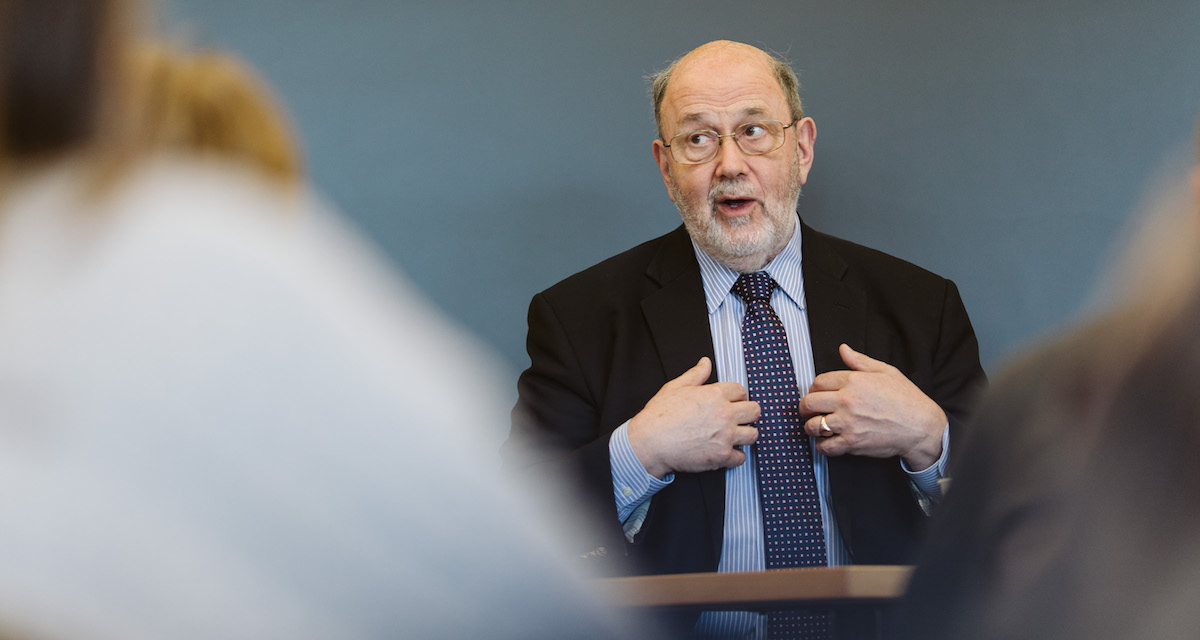An Interview with N.T. Wright: Part 1
During N. T. Wright’s recent visit to campus, The Bell had a chance to sit down with the renowned theologian, scholar and author. This is Part I of a two-part interview with N. T. Wright.
The Bell: What does a theologian do?
N.T. Wright: It’s a very good question. I’ve had people say to me, “Well, surely, the Bible has been around for 2,000 years. You mean we still don’t understand it?” And the answer is, well, no. Because we actually now know a lot more about the world of the Bible than we ever did before, which is really exciting—whether it’s the Dead Sea Scrolls or new archaeological discoveries.
And this is constantly shedding light afresh—not that our great predecessors in previous centuries were completely ignorant of what the Bible is saying, but again and again we can probe in.
We find that the way people asked questions in the 13thcentury, 16thcentury or 19thcentury were so skewed by their particular cultural and philosophical setting—that the Bible forms a corrective. Of course, we too are in a particular philosophical, cultural setting. We aren’t neutral observers, but, at the same time, unless we’re constantly trying to do this, we’re just the victim of our own circumstances.
Does culture influence the type of questions that you’re asking now?
Absolutely. We live in a world which is struggling to come to terms with [what] you might call the “postmodern critique of modernity in the Western world.” A lot of people are urgently asking questions, for instance, about human identity—”Who am I really?”
They’re asking questions in a way not done 50 years ago, when I was a youngster. With every new movie and new novel, the question is posed afresh. And it’s impossible for any one person—me or anyone else—to take all that on board and to do wise things with it. But that’s why it’s a corporate enterprise—trying to listen to one another and turn to that ongoing, cultural dialogue.
How has theology been made accessible to the general public or to people who may have questions, but may not have the vocabulary or the education to delve deeply into theology?
What I’ve tried to do is to take some of the great themes which all human beings know in their bones are important—like justice, beauty, spirituality, relationships, truth—and say, “Why do we care about these? Isn’t it odd that after all these years that we still get them wrong?” We still have trouble with them. We still don’t know how to make the world a better place. And then to show how the Bible itself and the great themes of Christian thought are deeply concerned with these very same things—with God putting the world right.
In my own preaching and teaching, I have been constantly trying to do that—to pick up the concerns of the culture to show where they sit on the larger biblical map and how they might be reframed by that.
What questions are you asking now as a theologian?
The ones I’ve been addressing most recently are questions concerning natural theology; that’s to say, “Can we, by starting off with observations of the natural world, work up to the cross or to the truth of God?”
Part of the trick here is that history is not a fantasy about the past with a few footnotes to sources; it’s actually a form of real knowledge. It’s actually the same sort of knowledge as the hard sciences give us, although there are significant differences.
The hard sciences study things you can repeat in the laboratory. History studies things you can’t repeat in the laboratory. At the same time, astronomy studies ancient history because every star you see comes from thousands of lightyears away. Likewise, geology studies stuff that happened millennia ago.
So, there are crossover points. The nature of history, the nature of knowledge within the mysterious nature of God. These are the big questions and it’s exciting for me coming into my dotage of about 70 to think about these big questions and try, hopefully, to make some sense of them. I’m having a lot of fun doing it. I just hope and pray that God will use this and if it’s worthwhile to people that’s great.
 The Bell
The Bell